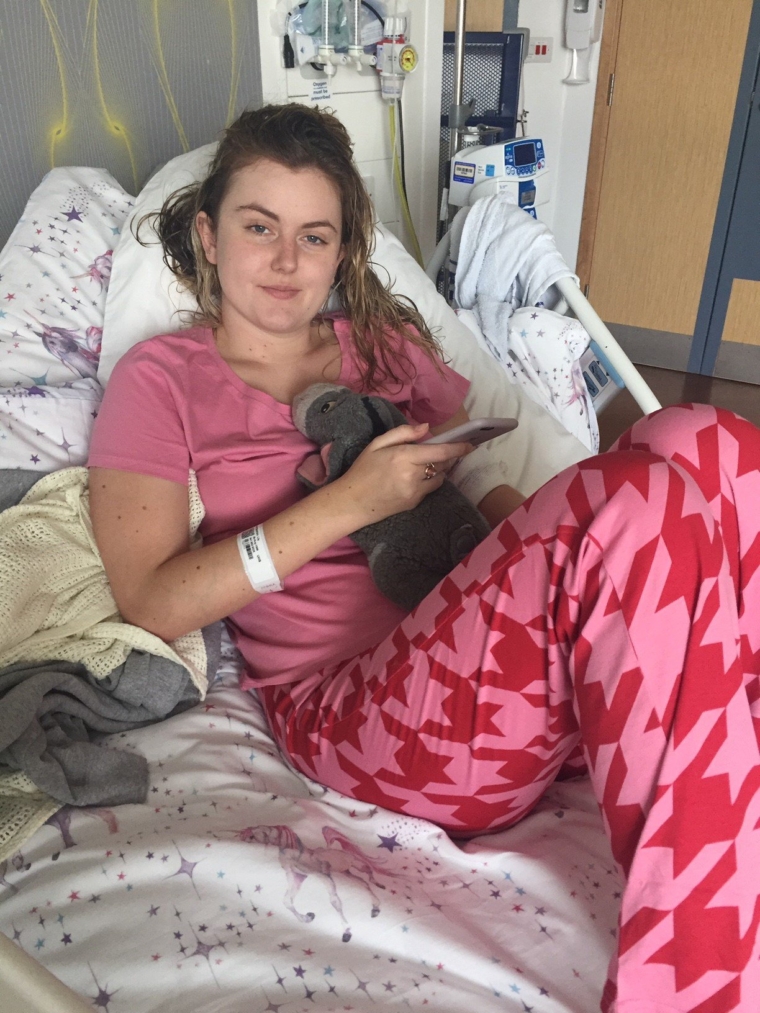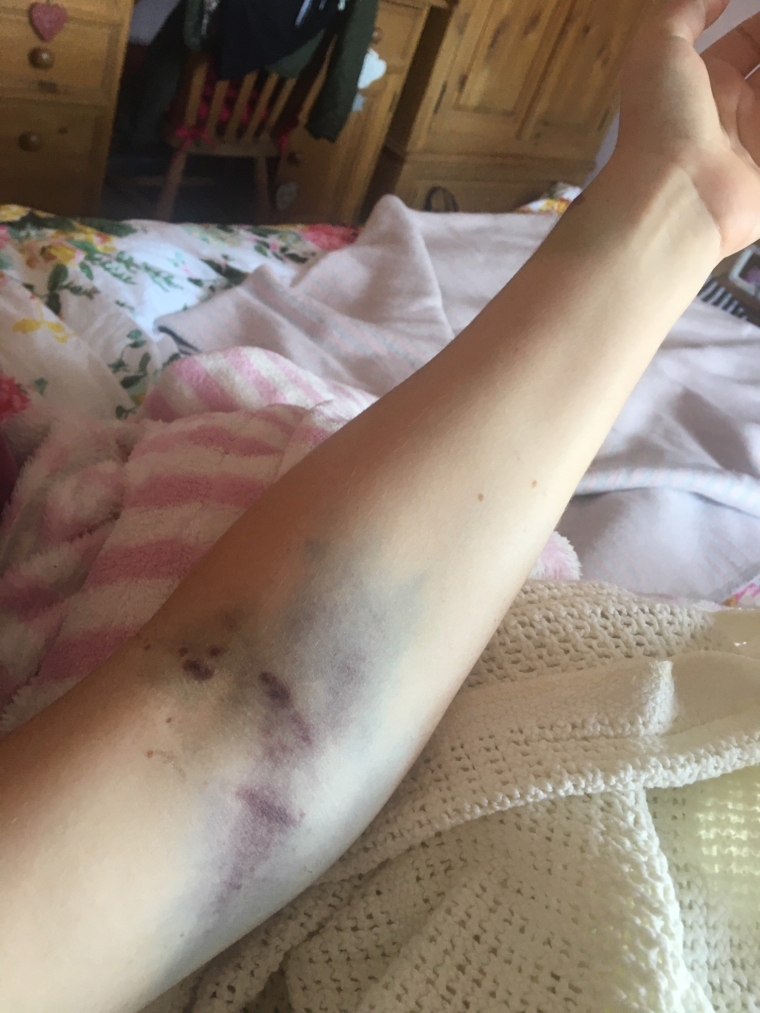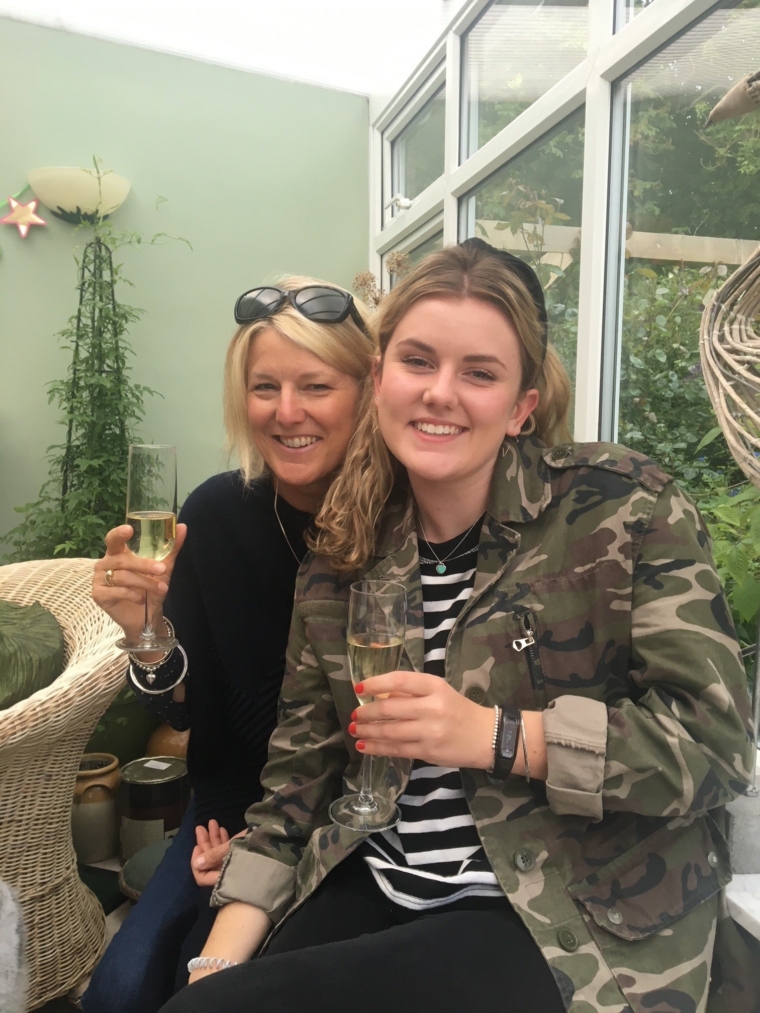When Lily Whitmarsh was diagnosed with leukaemia in 2019, days after she turned 20, it came as a complete shock. “My world came crashing down around me and I went into total meltdown,” she says.
She had been a fit and healthy teenager, but in the run-up to her birthday began experiencing mysterious symptoms. “I was constantly complaining that my legs ached and I was sometimes napping twice a day and still feeling exhausted,” she recalls.

“I looked extremely pale and was experiencing night sweats. I remember going out for a walk and having to stop halfway because I was so out of breath and felt dizzy.”
Lily, now 21, from Gillingham in Dorset, noticed a slight pinprick rash on the bottoms of her legs and odd-looking bruises which she couldn’t explain appearing randomly on her body. She went to her GP and was referred for blood tests.
Alarm bells rang when she was told her platelet count was extremely low and she was immediately sent to hospital.
After a bone marrow biopsy, Lily was diagnosed with acute lymphoblastic leukaemia. To make matters more complicated, she had a rarer subtype called Philadelphia positive, in which the leukaemia cells grow more rapidly.

She underwent chemotherapy treatment and went on to have a bone marrow transplant during the coronavirus pandemic. With no immune system, Lily knew she was extremely vulnerable and spent a lot of time shielding and avoiding people.
By the time the country went into lockdown and she left hospital after her transplant, she had already spent months in almost total isolation, only able to see close friends and family and with precautions to stay germ-free.
“After having my bone marrow transplant in March 2020, my immune system was extremely weak and I had to be very careful not to pick up any bugs as my body would struggle to fight them.”
When Lily went into hospital, she was only allowed visitors for about a week before the first coronavirus lockdown. Luckily, she had her mum, Lucy Shaw, by her side and says that she couldn’t have coped without her support, or that of the Teenage Cancer Trust.

Every day, seven young people in the UK aged 13 to 24 hear the words “you have cancer”. Teenage Cancer Trust helps put them in the best possible place physically, mentally and emotionally for their cancer treatment and beyond through expert nurses and support teams.
Lily received support from the charity’s youth support co-ordinator, Leonie, and says Leonie not only understood every aspect of a cancer diagnosis, but what it meant to be going through it as a young person.
Lily admits that being faced with a cancer diagnosis at such a young age, she had moments where she wondered: “Why me?” “With so many young people being diagnosed with cancer every day now, I then had to think: ‘why not me?’ I wasn’t any different to anybody else before I got ill, so the denial soon wore off and I accepted my illness was a process and I just had to work through it.”
Lily says that Leonie taught her to be strong and accept what was happening to her and feel more in control of her illness.
Lily says: “The thing with cancer is, it literally doesn’t care. It doesn’t care about your gender, your age, your race; and in my case, it didn’t care about my lifestyle either.
“I just woke up one day with some dodgy cells and then, bam, you’re told you’ve got it and it won’t go away without gruelling treatment that puts your whole life on hold and makes you contemplate whether you’re even going to survive.”

A bone marrow donor was found for Lily using the Anthony Nolan bone marrow donor register. Three matches for her were found worldwide – and all she knows about her donor is that he is a 39-year-old man from the UK.
After her transplant, the Covid-19 pandemic meant Lily had to isolate at home with her mother, sister and stepfather. She suffered severe exhaustion. “I was like a newborn baby and was sleeping for 18 or 20 hours a day and my diet was bland, white food,” she remembers. “Having no immune system in a global pandemic isn’t the ideal situation, but I felt safe knowing by not seeing people, I couldn’t catch anything.”
On 30 August, almost a year after her diagnosis, she celebrated her 21st birthday with an outdoor garden party and was finally able to see people, from a distance. It was “a real milestone”, she says.
However, in November 2020, just as Lily was making huge strides in her recovery, her mother received a diagnosis of breast cancer and had surgery that Christmas, followed by radiotherapy and chemotherapy in the new year.
“My mum went through it all with me and then suddenly, our roles were reversed and I had to see her go through it all.”
“Between the two of us, we went through a lot that year,” says Lily. “But we got through it and came out the other side. My mum has finished all her treatment and is doing well.”
The two women are now looking forward to a brighter 2022 – and Lily says she is eternally grateful to the stranger who gave her her life back by donating his stem cells.

“I count my lucky stars every day that my anonymous donor did what he did and donated his stem cells,” says Lily.
“Without him, I wouldn’t have had another Christmas. What matters most now is spending time with my family and friends and to be able to finally start living again, not just surviving.
“This random stranger did this wonderful and kind thing. He doesn’t know me, but he has saved my life. Without him, I would be very poorly or not be here.
“My treatment was harsh, it massively affected my life and will do for the next few years at least. But I have come so far and will forever be proud of myself for that.”

